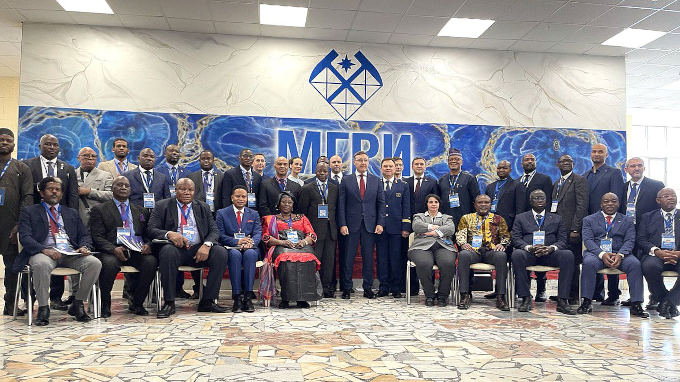
The Committee on Ecology, Natural Resources and Environmental Protection held a conference "Russia - Africa: Educational, scientific and technological cooperation in the field of subsoil use" at the Sergo Ordzhonikidze Russian State University for Geological Prospecting (MGRI)
Committee Chairman Dmitry Kobylkin: “The world is rapidly changing, and it is Russia and African countries that are called upon to become the engines of these changes.
We have concentrated significant reserves of natural resources necessary for the energy transition and the development of new technologies. There are people who are able to find and extract these resources.
Africa's potential has always been highly valued, and with the development of technology, its assessment has only increased. Approximately 30% of the world's mineral reserves, 8% of the world's natural gas reserves, 12% of oil, about 90% of chromium and platinum, and 40% of gold are concentrated on the continent.
In terms of resource endowment, Russia is in many ways similar to African countries. Therefore, joining forces will allow us to form new fair rules for the use of our resources in world markets.
I will outline three key areas on which the well-being of our states depends: The development of human capital, the development of technologies, and higher social and environmental responsibility of companies.
In terms of human capital, it is important to improve the education of our citizens, teach them modern technologies, and improve the quality of life. And these are not only the tasks of the state, but also of those companies that work in the industry. The MGRI is working to involve children from Africa in geological exploration and to create educational centers in individual countries.
Modern technologies are an important component of the economy. Russia has accumulated significant experience in exploration and production, and we are ready to share this experience. In addition, Russian companies operate in many African countries being the carriers of many technologies that are adapted and improved by them taking into account the local climate and characteristics.
Social and environmental responsibility are important components of ESG factors that are actively promoted by developed countries. I am convinced that they should not just propagate these principles, as is often done. First of all, they are obliged to implement them. Transnational companies, coming to make money on our resources, must bear environmental and financial responsibility for all violations, and restore disturbed ecosystems.
In Russia, we have been improving legislation in terms of raising the requirements for companies for several years now. This is the only way we can protect the interests of our country and our citizens.
These days, the dialogue will continue in a parliamentary format - on Sunday, the Russia-Africa in a Multipolar World conference begins in Moscow. The second Russia-Africa summit is scheduled for the summer.”
